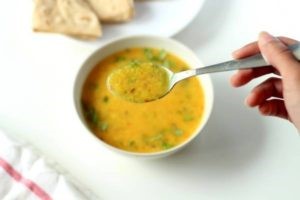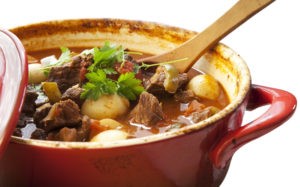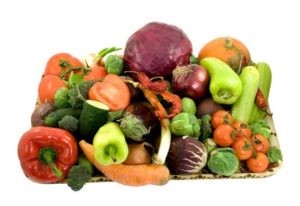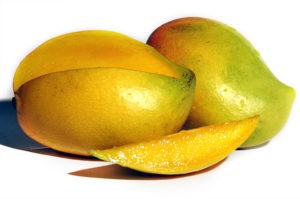13 Quick Tips to Eat Right this Monsoon

We all love the monsoons- the refreshing showers, the characteristic petrichor, the pretty blooms- they all tend to bring a smile on our face. With it comes frequent visits to the doctor, medical bills etc. as your body is not immune to changes. High humidity during monsoon tends to make your digestive system dull and weak. Hence there are a few changes in lifestyle that you will have to do during the monsoon to keep you and your loved ones safe from illnesses. The following are the things that you should keep in mind before planning your food consumption during the monsoon:
1. Infections like cough & cold are frequent visitors during the monsoon. Have a concoction of fresh radish juice, pipli and rock salt in warm water to avoid mucous formation.
2. Having easily digestible food like Moong Dal will help activate your digestive system.
3. Include easily digestible and nutritious spices like garlic, pepper, ginger, cumin and coriander to spice your food up.
4. Avoid non-vegetarian food during monsoon, instead stick to salads and stews. It is better to stay away from seafood (especially stocked seafood that’s not fresh) during monsoon as it acts as a carrier of water borne diseases.
5. Choose seasonal fruits like lychees, pomegranates, apples & bananas instead of non-seasonal fruits like melons. Avoid pre-cut fruits at all cost.
6. Consume only boiled water instead of water from cans or other purifiers and make sure it is consumed within 24 hours of boiling
7. Oil by itself is quite a tricky substance to be digested by the body; during monsoon it becomes even harder for it to be digested. Hence avoid cooking your food with heavy oils like mustard, sesame & peanut oil; instead substitute it with lighter substitutes like corn/olive oil.
8. It is better to avoid leafy vegetable during monsoon, instead switch to non-leafy vegetables like bitter gourd, beans, yam, snake gourd,etc.
9. Roadside vendors may tempt you with hot, steamy soups & yummy pani puris. Learn to say NO to them and eat home-cooked food as far as possible.
10. Don’t buy fruits with strong smell ( like jack-fruits or mangoes) as they tend to attract germs and flies that spread infectious diseases.
11. Avoid eating uncooked food and salads unless they are washed well.
12. It’s better to chop your vegetables into medium sized pieces instead of smaller/finer pieces as they lose more nutrients that way. Refrain from soaking vegetables after they are diced. Always ensure you use clean water for your cooking process. Don’t use tap water directly for cooking.
13. Stay away from milk during monsoon, instead use dairy products like yoghurt, curd, butter milk, etc. If you need to have milk, make sure you boil it with turmeric.
Always remember to carry an umbrella/raincoat when you step out and make sure you don’t get wet. It’s now time to sit back & enjoy the monsoon with a smile!
References:
http://www.indiadiets.com/diet -and-nutrition/tips-rainy-seas on.htm
http://www.onlymyhealth.com/diet-nutrition-tips-monsoon-1340904633









